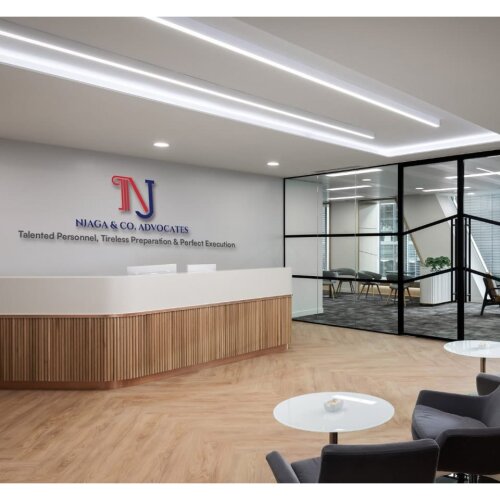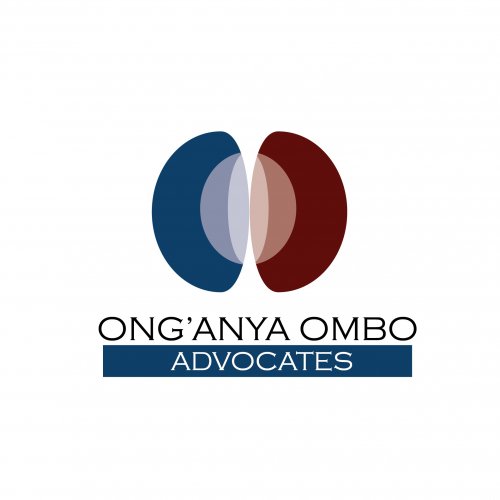Best Restructuring & Insolvency Lawyers in Kenya
Share your needs with us, get contacted by law firms.
Free. Takes 2 min.
Or refine your search by selecting a city:
List of the best lawyers in Kenya
Legal guides written by Adroit Law LLP:
- Kenya Launches Digital Nomad Visa: A Gateway for Remote Workers
- Navigating the Payment System License Maze in Kenya
- Navigating the Complexities of Mining Licenses and Permits in Kenya: A Look into Artisanal and Large-Scale Operations
About Restructuring & Insolvency Law in Kenya
Restructuring and insolvency law in Kenya is a specialized field focused on the legal processes involved when businesses or individuals are struggling to meet their financial obligations. The law provides a framework for negotiations with creditors, formal restructuring processes, bankruptcy, and liquidation. It aims to help financially distressed entities either recover and continue operations or wind up in a manner that is fair to stakeholders. Kenya has established laws and regulations to ensure these processes are orderly, transparent, and protect the interests of creditors and debtors alike.
Why You May Need a Lawyer
There are several common situations in which individuals or businesses in Kenya may require legal assistance in matters of restructuring and insolvency:
- When a business is facing insolvency or is unable to pay its debts as they become due
- If you are a creditor concerned about recovering money owed by a debtor in insolvency proceedings
- When considering voluntary administration, receivership, or liquidation for a company
- For advice on how to restructure company debts and obligations to avoid insolvency
- If you need representation in court during insolvency litigation
- To ensure full compliance with local insolvency laws and to understand your legal rights and options
- When management or shareholders dispute the direction of a restructuring process
- To negotiate or mediate between creditors and debtors
A lawyer can guide you through complex processes, protect your interests, and help develop solutions that align with both legal requirements and practical outcomes.
Local Laws Overview
Kenya's framework for restructuring and insolvency is primarily governed by the Insolvency Act No 18 of 2015. This Act consolidated and modernized the previous insolvency laws, providing for individual and corporate insolvency, informal workouts, bankruptcy, liquidation, administration, and receivership.
Key aspects of Kenya's insolvency laws include:
- Voluntary and involuntary insolvency procedures for both individuals and companies
- Provision for out-of-court settlements and company voluntary arrangements (CVAs)
- Appointment and duties of insolvency practitioners (such as administrators, liquidators, and trustees)
- Protection of certain assets and employees' rights during insolvency
- Framework for creditors' meetings and the order of priorities for debt repayment
- Cross-border insolvency recognition and cooperation
Besides the Insolvency Act, other relevant laws include the Companies Act, Employment Act, and regulations issued by the Office of the Official Receiver. The courts play a significant role in overseeing insolvency cases, ensuring the law is correctly applied and disputes are resolved equitably.
Frequently Asked Questions
What is insolvency?
Insolvency is a legal state where an individual or company is unable to pay debts as they fall due. It often leads to formal legal processes to protect both debtors and creditors.
What is the difference between bankruptcy and liquidation?
Bankruptcy refers mainly to individuals who are unable to pay their debts and are declared so by a court. Liquidation, on the other hand, is the winding up of a company's affairs, involving the sale of assets to pay creditors.
Can a company avoid liquidation through restructuring?
Yes. Companies in Kenya can engage in restructuring processes, such as entering into voluntary arrangements or administration, to avoid liquidation and potentially return to solvency.
What role does the Official Receiver play in insolvency cases?
The Official Receiver is an officer appointed by the government to oversee and manage the administration of insolvency cases, including bankruptcy and liquidation proceedings.
Are employees paid before other creditors in liquidation?
In Kenya, certain employee claims, such as unpaid wages and benefits, are given priority over unsecured creditors during the liquidation of a company.
Can individuals initiate their own bankruptcy proceedings?
Yes. Individuals can petition the courts for bankruptcy if they are unable to pay their debts. Creditors can also initiate bankruptcy proceedings against an individual.
What is the process of administration in insolvency?
Administration involves the appointment of an insolvency practitioner to manage a company's affairs with the aim of rescuing the company or achieving a better result for creditors than immediate liquidation.
How long does the insolvency process usually take?
The duration varies depending on the complexity of the case, the assets involved, the number of creditors, and the chosen insolvency process. Some cases conclude in a few months while others may take years.
Can creditors challenge an insolvency process?
Yes. Creditors can challenge certain decisions made by insolvency practitioners or the debtor company in court if they believe their rights are being compromised.
What are the penalties for directors found guilty of misconduct during insolvency?
Directors can face penalties including disqualification from holding directorship positions, personal liability for company debts, and, in severe cases, criminal charges.
Additional Resources
If you are seeking further information or support regarding restructuring and insolvency in Kenya, consider the following resources:
- The Office of the Official Receiver: Responsible for the administration of insolvency cases and issuing guidelines on compliance.
- Judiciary of Kenya: Handles insolvency matters and provides relevant forms and procedures.
- Law Society of Kenya: Provides a directory of qualified insolvency lawyers and practitioners.
- Kenya Association of Insolvency Practitioners: Offers information on licensed insolvency professionals in Kenya.
- Business advocacy groups and chambers of commerce: Provide advisory services and support for businesses in distress.
Next Steps
If you believe you need legal assistance in restructuring and insolvency, it is important to act quickly. Begin by gathering any relevant financial documents and records related to your situation. Make a list of your creditors and debts, and outline the key challenges you are facing. Consider consulting with a lawyer who specializes in insolvency and restructuring to discuss your options, rights, and obligations. A professional can help you understand the best course of action, whether that involves restructuring, entering into negotiations with creditors, or initiating formal insolvency proceedings. Remember that timely legal advice can make a significant difference in protecting your interests and reaching the most favorable outcome.
Lawzana helps you find the best lawyers and law firms in Kenya through a curated and pre-screened list of qualified legal professionals. Our platform offers rankings and detailed profiles of attorneys and law firms, allowing you to compare based on practice areas, including Restructuring & Insolvency, experience, and client feedback.
Each profile includes a description of the firm's areas of practice, client reviews, team members and partners, year of establishment, spoken languages, office locations, contact information, social media presence, and any published articles or resources. Most firms on our platform speak English and are experienced in both local and international legal matters.
Get a quote from top-rated law firms in Kenya — quickly, securely, and without unnecessary hassle.
Disclaimer:
The information provided on this page is for general informational purposes only and does not constitute legal advice. While we strive to ensure the accuracy and relevance of the content, legal information may change over time, and interpretations of the law can vary. You should always consult with a qualified legal professional for advice specific to your situation.
We disclaim all liability for actions taken or not taken based on the content of this page. If you believe any information is incorrect or outdated, please contact us, and we will review and update it where appropriate.
Browse restructuring & insolvency law firms by city in Kenya
Refine your search by selecting a city.

















